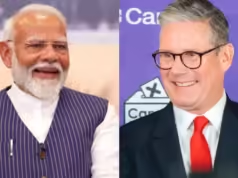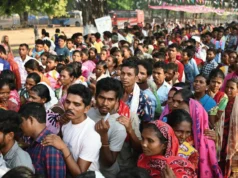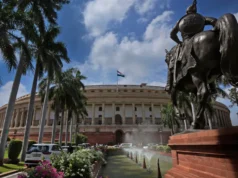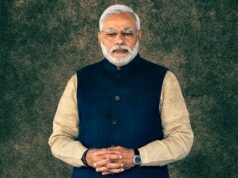Parliament will debate Operation Sindoor for a total of 32 hours beginning Monday. It is anticipated that the debate will be heated and combative, with the opposition demanding definitive answers and the government attempting to reverse the trend by challenging the Congress’ nationalism, as was the case following the 2019 Balakot airstrikes in Pakistan.
Rajnath Singh, the minister of defence, will start the Lok Sabha debate. Rahul Gandhi will start the conversation from the Congress, so the opposition’s intentions are obvious. One of the main demands of the opposition is that the PM be present when the opposition speaks, and PM Narendra Modi might step in and speak during the discussion.
Curiously, the government has not formally agreed to the PM’s address. Kiren Rijiju, the minister of parliamentary affairs, stated last week that the opposition is unable to choose whether the prime minister will speak. Rijiju compared it to the government’s inability to select the opposition speakers. However, since Operation Sindoor was the PM’s idea, the fact that the conversation is only taking place after the PM has returned from overseas indicates that the BJP would like to use its most powerful weapon against the opposition.
Donald Trump’s ceasefire assertions
Almost twenty-five times, US President Donald Trump has claimed that he used commerce as a lure to get India and Pakistan to halt hostilities on May 10. This is the most incendiary subject. Narendra Modi and Rajnath Singh may both refute this by pointing to Modi’s 35-minute phone conversation with Trump last month, in which Modi discussed in plain English that the US did not mediate a ceasefire.
It might turn into a scenario similar to Balakot, where the opposition requested proof and suffered greatly in the general elections of 2019, if the opposition continues to insist on knowing the Indian side’s losses.
Pahalgam’s security failure
Another hot topic will be Pahalgam’s security lapse. In previous conversations with the opposition, the government acknowledged its security and intelligence failures on April 22.
J&K LG Manoj Sinha has formally acknowledged his mistakes and accepted responsibility for them. In Parliament, S. Jaishankar, Amit Shah, Anurag Thakur, and Nishikant Dubey are anticipated to speak and take the lead. Akhilesh Yadav and Mallikarjun Kharge will also speak in an attempt to corner the prime minister.
India’s support following Pahalgam
During the conversation, the government would further emphasise to the opposition that, following Pahalgam, practically the whole world supported India. The administration may claim that nations from Washington to Tokyo, Paris to Canberra, denounced the despicable crime in unison and unreservedly supported India’s campaign against terror.
In a significant diplomatic victory for India, the US referred to the Pahalgam attack as “heinous” and even classified The Resistance Front, a Lashkar-e-Taiba operative, as a terrorist outfit. France provided resolute assistance. As he did in Pulwama, French President Emmanuel Macron firmly denounced the incident.
Vladmir Putin, the president of Russia, personally called Prime Minister Modi to express sympathy and support. Proposals against India at the UNSC are still blocked by Moscow. It was deemed “an attack on peace and humanity” by the UK and the G7.
Even China expressed “shock” and “strong condemnation,” despite its custom of treading carefully. Beijing didn’t dare replicate Islamabad’s propaganda, despite its attempt to strike a balance by bringing up Pakistan’s “concerns” in diplomatic doublespeak.
As a result, the US, UK, France, Russia, and even China, who make up the UNSC P5, either totally supported India or maintained their neutrality. The European Union firmly supported India. Japan reaffirmed its Indo-Pacific alliance and commended India’s moderation. Argentina, Israel, Spain, Germany, Italy, and Australia all strongly denounced the attack and offered their unwavering support. India received unambiguous backing from even states who are frequently on the fence, such as Iran, Palestine, and a number of Arab countries, including Saudi Arabia, the United Arab Emirates, Egypt, and Jordan.
Since Rahul Gandhi has frequently questioned why the majority of nations have not publicly backed India, this is likely to put him in a difficult position.







